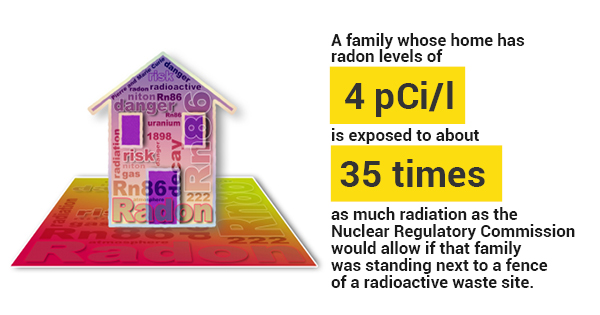
Radon gas is a serious health hazard and a problem all across the country. In our nation, there are plenty of homes that are filled with this odorless and tasteless gas without the inhabitants even knowing. Radon is incredibly dangerous: For perspective, a family whose home has radon levels of 4 pCi/l is exposed to about 35 times as much radiation as the Nuclear Regulatory Commission would allow if that family was standing next to a fence near a radioactive waste site.
With this scary statistic in mind, it is important to understand the ins and outs of residential radon testing and inspection. Here we answer some frequently asked questions about radon in the home.
Q: Is there an acceptable level of radon that can pass radon gas testing?
A: While it is important to note that no level of radon is a good level, it is important to know that the US Environmental Protection Agency has set a standard of 4 pCi/l as the action level for having to remove the radon from the home.
Q: How fast do I have to react if there is radon in my home?
A: If you find out that there is radon in your home, make sure to contact a radon testing contractor right away to learn about your options. Don’t wait until it is too late!
Q: How does a radon testing company actually test for radon?
A: Depending on the radon levels and the size of your home there are different methods that can be taken by a radon testing contractor. Generally, there are two methods that can be used, an activated charcoal test kit or an alpha track device.
Activated charcoal test kit: this test kit collects radon gas atoms right there in the home.
Alpha track device:: this device has a strip of plastic that collects radon particles, and then they are counted in a lab.
Q: Is there any area in my home that is more susceptible to radon than others?
A: Yes, the basement and lower levels of your home are the most at risk simply because radon is formed when uranium in the soil and rocks around your home breaks down. However, it is important to know that radon gas can also enter your home’s water supply, meaning the air in your home is not the only thing at risk.
To find out more about radon in your home, look out for our next blog post!

Recent Comments